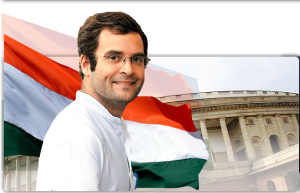Azhar Qadri
SRINAGAR: There was trust deficit between the National Conference and Congress just a year after leaders of the two parties signed a historic accord which resulted in Sheikh Abdullah’s return to power after a gap of two decades.
The US diplomatic cables leaked by Wikileaks said the “strained relations” between Abdullah’s National Conference and the Congress reached “a point of confrontation” in early October 1976 over the question of timing and procedure for the civic body elections.
The historic February 1975 accord, signed by representatives of Kashmir’s then most towering leader Abdullah and Prime Minister Indira Gandhi, led to Abdullah’s return to power as the state’s Chief Minister.
Abdullah, who founded the National Conference out of the Muslim Conference, was earlier dismissed as the Prime Minister of Jammu and Kashmir in 1953 and spent many years in jail, internment and in exile. The current Chief Minister of the state Omar Abdullah is his grandson.
“A round of ‘shuttle diplomacy’ between Srinagar and Delhi resulted in a compromise between the Sheikh (Abdullah) and the Centre which appeared to satisfy both sides,” the confidential cable, filed from US embassy in New Delhi and dated November 1, 1976, said. Most of the US diplomatic cables about Kashmir, leaked by Wikileaks in its latest haul, are already declassified.
Under the compromise reached out by the two parties, the cable says, the National Conference would be allowed to win the bulk of the seats in the Municipal Councils in the Valley while four state Congress leaders were to be admitted into Abdullah’s senior cabinet.
“But a funny thing happened on the way to the swearing-in ceremony and the deal collapsed. The situation in the state has apparently returned to square one, with both the Cabinet expansion and the civic elections postponed indefinitely,” the cable said.
The US embassy believed the “new round of acrimony” may arise between the two sides following the deal collapse. “But we strongly doubt whether Prime Minister (Indira) Gandhi will allow any renewed Congress-National Conference hostility to reach the point of endangering the February 1975 Kashmir accord,” it said.
Abdullah, according to the cable, wanted the civil polls to be held early so that he could consolidate his position in the state and demonstrate his strength, which the state Congress leader “presumably acting on behalf of the Centre” wanted to be indefinitely postponed.
The US cable says Abdullah, at this moment of confrontation with the Congress party, even held out the “spectre” of forming an electoral alliance with Maulvi Mohammad Farooq’s pro-Pakistan Awami Action Committee.
Under the “shuttle diplomacy”, the US embassy cable says, Congress president Debakanta Barua had a five-day “holiday” in Srinagar in mid-October following which Abdullah travelled to New Delhi for three days of talks with Barua, Indira Gandhi and other senior Congress leaders.
“We understand that when Abdullah arrived in the capital (New Delhi), he was presented a ‘package deal’ on a take-it-or-leave-it basis,” the cable says.
Another US cable, which was filed the day when Indira announced the signing of the 1975 agreement with Abdullah in Parliament, says that Abdullah “failed to achieve” most of his demands and had to “settle for assurances that India would not remove what remains of Kashmir’s special status without the state’s concurrence”.
(TNS)











